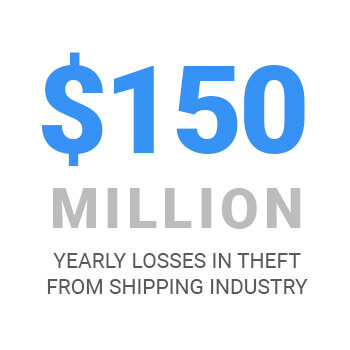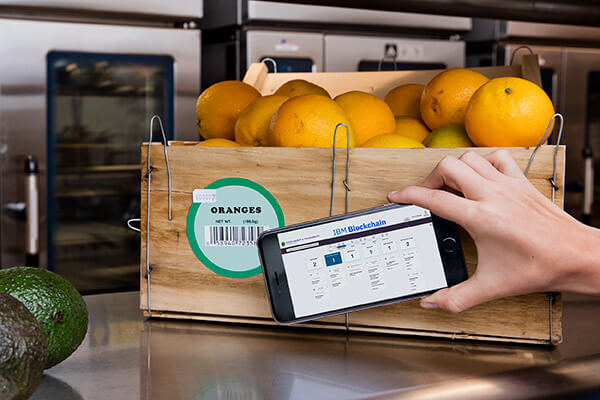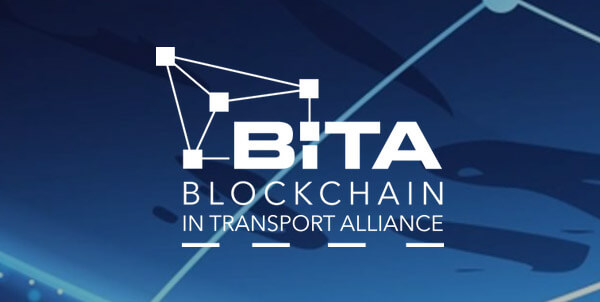 How Blockchain Technology is Shaking Up the Logistics Industry
How Blockchain Technology is Shaking Up the Logistics Industry How Blockchain Technology is Shaking Up the Logistics Industry

Cover art/illustration via CryptoSlate. Image includes combined content which may include AI-generated content.
It seems blockchain technology is everywhere nowadays, and if you do a quick Google search it would appear that it can be used in every industry on earth. Giant companies are keen to get in on this latest trend including Walmart, Maersk, British Airways, Visa and FedEx to name a few. However, one industry where blockchain technology is sure to be a game changer is transport and logistics.
What are the current problems in the industry?
There are a number of problems within the industry; including transparency in supply chains with many end consumers not knowing where their products have come from, complex processes with intermediary freight brokers and a lack of accountability when it comes to losses that occur within the often complex and opaque process.
 More recently there has been a big problem with fictitious pickups. This is where con artists will show up at a shipping dock with falsified records to pick up goods.
More recently there has been a big problem with fictitious pickups. This is where con artists will show up at a shipping dock with falsified records to pick up goods.
Fictitious pickups account for almost 10% of all cargo thefts, amounting to an estimated $150,000,000 losses to the industry each year. And that is just the Fictitious pickups, overall cargo thefts are costing the industry anywhere between $15 billion to $30 billion a year.
Experts in the field believe that the number may be higher as many companies do not report the thefts, as they are embarrassed about not properly vetting their carriers and drivers. These losses are adding on roughly 20% in costs to the end consumer.
How can blockchain technology help?

There are a number of different ways where the technology will be useful. By using smart contracts companies will be able to automate the purchasing process thus cutting costs and saving time. Companies are also able to improve the transaction flow and secure the supply chain.
They do this by attributing a tag to each product which enables you to secure your supply chain in the blink of an eye.
This means that you can store origin, place of storage, authenticity, property certificates, and records: all the necessary information on a single ledger. All of the information being in one place that is easy to access would not only create a more transparent supply chain but also be useful in decreasing the amount of cargo theft that occurs. In both situations, ultimately passing the savings onto the end consumer.
Who is using it?
Right now it is estimated that 6 out of 10 major companies are currently researching ways in which they can apply blockchain technology to their businesses. Walmart recently teamed up with IBM to increase transparency in their supply chains. Then there is the Blockchain in Trucking Alliance (BiTA), with over 60 members including FedEx, UPS and UberFreigt to name a few.
Walmart

Walmart is working with IBM to help add more transparency to their supply chains. After scanning mangoes or a couple dozen other products with the store’s app, employees can see which farm the fruit came from and where it’s stored in the backroom.
Testing done by Walmart showed that the amount of time it takes to trace a package of mangoes from farm to store was reduced dramatically. The original process took days or weeks but by using blockchain technology it was down to 2 seconds.
The technology could help customers understand where their food comes from and could streamline the restocking process.
Bridget van Kralingen, senior vice president for IBM Industry Platforms said:
“Blockchain [technology] holds incredible promise in delivering the transparency that is needed to help promote food safety across the whole supply chain.”
Blockchain in Transport Alliance (BiTA)

The core of their business is to reduce costs whilst at the same time making shipping more efficient. There is over 60 current members with roughly 300 applications still being processed.
How the industry stands now there is little transparency throughout the process, meaning there is no one player accountable for the many liabilities that occur.
According to their website,
“BiTA was formed by experienced tech and transportation executives to create a forum for the development of blockchain standards and education for the freight industry.”
The shipping company UPS joined BiTA with the hopes of increased transparency between the different companies in the supply chain as well as looking at how blockchain can be used in its custom brokerage business.
UPS said in a press release,
“In the future, blockchain standards and intercompany collaboration will support the logistics strategies that enable UPS customers to participate in global trade and finance.”
Conclusion
The logistics and shipping industry is increasingly relying on technology to cut costs, improve processes and increase transparency. Blockchain technology could be a solution to many of the industries issues. With more major corporations utilizing the technology and the implications of how it can be successfully used still being explored. It is an exciting time for the industry and it will be great to see which companies get involved in the future.









































































































